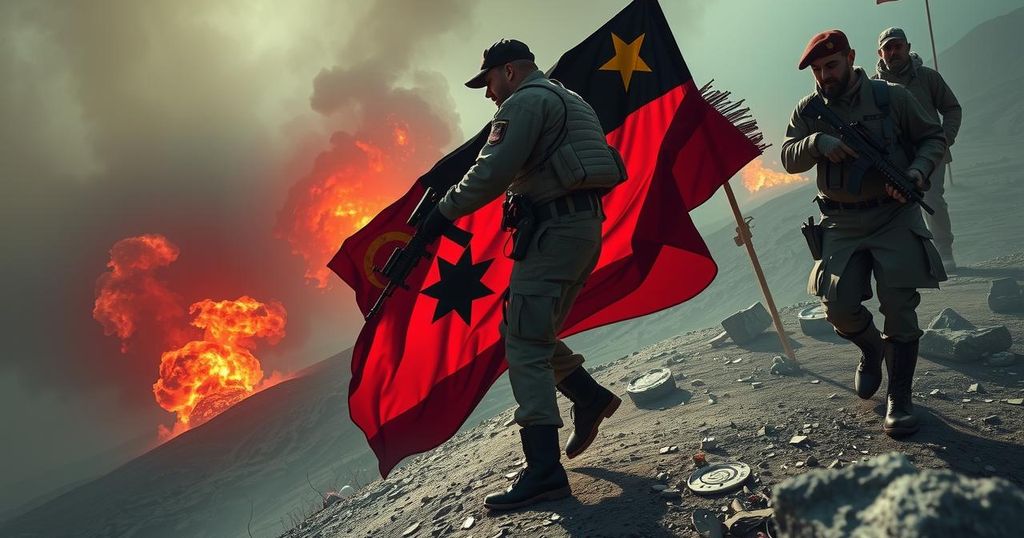The Erosion of Iran’s Influence: Hezbollah’s Decline and its Consequences
The conflict between Hezbollah and Israel has severely weakened Iran’s influence in the Middle East, exacerbated by the loss of Hezbollah’s leadership and military infrastructure due to Israeli operations. This crisis has spurred a reevaluation of Iran’s proxy strategies, with many Lebanese citizens calling for the Lebanese Army to reclaim control from Hezbollah. The outcome of the conflict underscores the shifting power dynamics in the region, posing challenging prospects for Iran’s continued regional aspirations.
The ongoing conflict involving Hezbollah and Israel has significantly weakened Iran’s influence in the Middle East, particularly due to losses suffered by Hezbollah. Following a devastating operation by Israeli intelligence that resulted in severe casualties among Hezbollah members, including the assassination of their leader, Hassan Nasrallah, the organization has struggled to maintain its operational effectiveness. Israeli military actions have devastated Hezbollah’s infrastructure, crippling their capabilities and shifting the balance of power. Consequently, Iran’s strategy of utilizing Hezbollah as a proxy force has faced serious challenges, leading analysts to declare a substantial deterioration of Iran’s standing in the region.
Hezbollah’s struggle for survival in the aftermath of aggressive Israeli operations demonstrates the precarious nature of Iranian influence in the face of military might. Conversely, the social and political implications of the conflict in Lebanon highlight a desire among the Lebanese citizenry for a more nationalistic approach over Iranian directives, as many view Hezbollah’s recent actions as aligned with Iranian interests rather than local aspirations. Therefore, Israel’s military successes, combined with Hezbollah’s leadership void, suggest a gradual decline of Iranian proxy strength across the region.
Hezbollah has long been viewed as a crucial proxy force for Iran, strategically positioned to project Iranian power throughout the Middle East. However, the recent escalation of hostilities with Israel has critically undermined Hezbollah. The Israeli government has conducted targeted operations against Hezbollah’s leadership and military capabilities, which has resulted in the loss of key figures and operational infrastructure for the group. Additionally, the recent political landscape in the Middle East, particularly the shifting allegiances and power dynamics in Syria, has compounded this issue for Iran and its proxy forces, further weakening their grasp on regional influence.
In summary, the recent military conflict has dramatically diminished Hezbollah’s operational capacity and Iranian influence in Lebanon. The ramifications of the Israeli strikes and internal discontent within Lebanon signal a transformation in the regional power structure. As Hezbollah struggles to regain its former strength and legitimacy, Iran’s reliance on proxy warfare faces critical reevaluation, prompting discussions regarding its future strategic aims and regional role. The ongoing ceasefire highlights the fragile state of peace as both sides remain vigilant, with the potential for reescalation ever-present.
Original Source: www.cbsnews.com




Post Comment